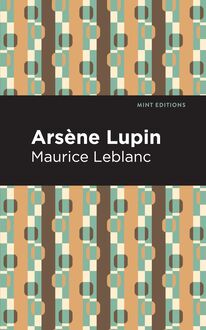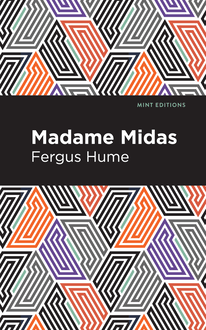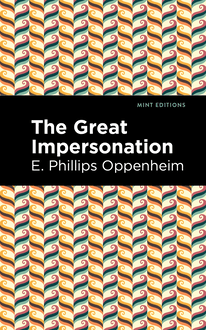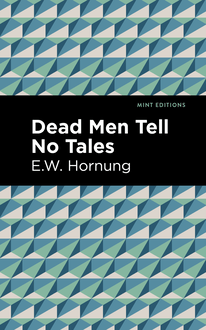-
 Univers
Univers
-
 Ebooks
Ebooks
-
 Livres audio
Livres audio
-
 Presse
Presse
-
 Podcasts
Podcasts
-
 BD
BD
-
 Documents
Documents
-
- Cours
- Révisions
- Ressources pédagogiques
- Sciences de l’éducation
- Manuels scolaires
- Langues
- Travaux de classe
- Annales de BEP
- Etudes supérieures
- Maternelle et primaire
- Fiches de lecture
- Orientation scolaire
- Méthodologie
- Corrigés de devoir
- Annales d’examens et concours
- Annales du bac
- Annales du brevet
- Rapports de stage
La lecture à portée de main
Vous pourrez modifier la taille du texte de cet ouvrage
Découvre YouScribe en t'inscrivant gratuitement
Je m'inscrisDécouvre YouScribe en t'inscrivant gratuitement
Je m'inscrisEn savoir plus
Vous pourrez modifier la taille du texte de cet ouvrage
En savoir plus

Description
The Place of Dragons (1916) is a mystery novel by Anglo-French writer William Le Queux. Published at the height of Le Queux’s career as a leading author of popular thrillers, The Place of Dragons is a story of mystery, murder, and suspicion. Using his own research and experience as a journalist and adventurer, Le Queux crafts an accessible, entertaining tale for readers in search of a literary escape. Known for his works of fiction and nonfiction on the possibility of Germany invading Britain—a paranoia common in the early twentieth century—William Le Queux also wrote dozens of thrillers and adventure novels for a dedicated public audience. Although critical acclaim eluded him, popular success made him one of England’s bestselling writers. In The Place of Dragons, an old man and his nephew settle in the sleepy seaside village of Cromer, where locals begin to wonder who they could be. While Vernon Gregory spends his days walking along the beautiful North Sea coast, the young Edward Craig frequents the local billiard halls and golf courses. Noted for his philanthropy and plain tastes, Gregory is soon revealed to be a wealthy industrialist whose fortune was made manufacturing steel armor plates for the British military. When the old man is discovered dead on a remote cliffside, and when his nephew goes missing the same day, the normally quiet town becomes the center of a national investigation. As secrets are slowly revealed, the people of Cromer are forced to confront truths about one another they had formerly hoped to ignore—truths detective Herbert Vidal is keen to expose and examine. With a beautifully designed cover and professionally typeset manuscript, this edition of William Le Queux’s The Place of Dragons is a classic mystery novel reimagined for modern readers.
Sujets
Informations
| Publié par | Mint Editions |
| Date de parution | 21 mai 2021 |
| Nombre de lectures | 0 |
| EAN13 | 9781513285955 |
| Langue | English |
| Poids de l'ouvrage | 2 Mo |
Informations légales : prix de location à la page 0,0500€. Cette information est donnée uniquement à titre indicatif conformément à la législation en vigueur.
Extrait
The Place of Dragons
William Le Queux
The Place of Dragons was first published in 1916.
This edition published by Mint Editions 2021.
ISBN 9781513280936 | E-ISBN 9781513285955
Published by Mint Editions ®
minteditionbooks.com
Publishing Director: Jennifer Newens
Design & Production: Rachel Lopez Metzger
Project Manager: Micaela Clark
Typesetting: Westchester Publishing Services
C ONTENTS I. P RESENTS A P ROBLEM II. I S M AINLY A STONISHING III. S HOWS L IGHTS FROM THE M IST IV. O PENS S EVERAL Q UESTIONS V. I N WHICH THE S HADOW F ALLS VI. M YSTERY I NEXPLICABLE VII. T ELLS OF T WO M EN VIII. R EMAINS AN E NIGMA IX. D ESCRIBES A N IGHT -V IGIL X. C ONTAINS A C LUE XI. T HE A FFAIR OF THE S EVENTEENTH XII. L OLA XIII. R ELATES A S TRANGE S TORY XIV. W HEREIN C ONFESSION IS M ADE XV. C ONFIRMS C ERTAIN S USPICIONS XVI. “W HERE THE T WO C ’S M EET ” XVII. R EVEALS A NOTHER P LOT XVIII. D ONE IN THE N IGHT XIX. R ECORDS F URTHER F ACTS XX. A NOTHER D ISCOVERY IS M ADE XXI. E XPLAINS L OLA’S F EARS XXII. T HE R OAD OF R ICHES XXIII. F OLLOWS THE E LUSIVE J ULES XXIV. M AKES A S TARTLING D ISCLOSURE XXV. I S M ORE M YSTERIOUS XXVI. H OT -F OOT A CROSS E UROPE XXVII. O PENS A D EATH -T RAP XXVIII. D ESCRIBES A C HASE XXIX. T HE H OUSE IN H AMPSTEAD XXX. N ARRATES A S TARTLING A FFAIR XXXI. “S HEEP OF T HY P ASTURE ” XXXII. T HE T ENTS OF U NGODLINESS XXXIII. D ISCLOSES A S TRANGE T RUTH XXXIV. C ONCERNS T O - DAY
I
P RESENTS A P ROBLEM
“Curious affair, isn’t it?”
“Very.”
“Now, you’re a bit of a mystery-monger, Vidal. What’s your theory—eh?”
“I haven’t one,” I replied with a smile.
“I knew the old boy quite well by sight. Didn’t you?” asked my friend, Major Keppell, as we stood gossiping together in the doorway of the Hôtel de Paris , high up on the cliff opposite the pier at Cromer.
“Perfectly. His habit was to go down the slope yonder, to the pier each morning at ten, and to remain there till eleven,” I said. “I used to watch him every morning. He went as regularly as the clock, wet or fine.”
“A bit eccentric, I thought,” remarked the Major, standing astride in his rough golfing clothes, and puffing at his briar pipe. “Quite a character for a novel—eh?” and he laughed. “You’ll do a book about this strange affair—what?”
I shrugged my shoulders and smiled, as I replied: “Not very likely, I think. Yet the circumstances are, to say the least, extremely curious.”
“They are, from all I hear,” said my friend. Then, glancing at his wristlet watch, he exclaimed: “By Jove!—nearly seven! I must get in and dress for dinner. See you later.”
With this he passed through the swing-doors of the hotel, leaving me standing upon the short sweep of gravel gazing out upon the summer sea, golden in the glorious June sunset.
The Major had spoken the truth. A discovery had been made in Cromer that morning which possessed many remarkable features, and to me, an investigator of crime, it presented an extremely interesting problem—one such as I, Herbert Vidal, had never before heard of.
Briefly related, the facts were as follows. Early in February—four months before—there had arrived in Cromer a queer, wizened, little old man named Vernon Gregory. He was accompanied by his nephew, a rather dandified, overdressed young fellow of twenty-three, named Edward Craig.
Strangers are very few in Cromer in winter, and therefore Mrs. Dean, landlady of Beacon House, on the West Cliff, a few doors west of the Hôtel de Paris , where the asphalted footpath runs along the top of the cliff, was very glad to let the new-comers the first-floor front sitting-room with two bedrooms above.
In winter and spring, Cromer, high and bleak, and swept by the wild, howling winds from the grey North Sea, its beach white with the spume of storm, is practically deserted. The hotels, with the exception of the Paris , are closed, the boarding-houses are mostly shut, and the landladies who let apartments wait weeks and weeks in vain for the arrival of a chance visitor. In August, however, the place overflows with visitors, all of the best class, and for six weeks each year Cromer becomes one of the gayest little towns on the breezy East Coast.
So, all through the spring, with its grey, wet days, when the spindrift swept in a haze across the promenade, old Mr. Gregory was a familiar figure taking his daily walk, no matter how inclement the weather.
In appearance he was unusual, and seedy. His bony face was long, thin, and grey; a countenance that was broad at the brow and narrowed to a pointed chin. He had a longish white beard, yet his deep-set eyes with their big bushy brows were so dark and piercing that the fire of youth seemed still to burn within them. He was of medium height, rather round-shouldered, and walked with a decided limp, aided by a stout ash stick. Invariably he wore an old, dark grey, mackintosh cape, very greasy at the collar; black trousers, old and baggy; boots very down at heel; and on his mass of long white hair a broad-brimmed felt hat, which gave him the appearance of a musician, or an artist.
Sometimes, on rare occasions, his well-dressed nephew walked with him—but very seldom were they together.
Craig was a tall, well-set-up young fellow, who generally wore a drab golf-suit, smoked cigarettes eternally, and frequently played billiards at the Red Lion . He was also a golfer and well known on the links for the excellence of his play.
Between uncle and nephew there was nothing in common. Craig had dropped a hint that he was down there with his relative “just to look after the old boy.” He undoubtedly preferred London life, and it was stated that a few years before he had succeeded to a large estate somewhere on the Welsh border.
The residents of Cromer are as inquisitive as those of most small towns. Therefore, it was not very long after the arrival of this curious couple, that everybody knew that old Mr. Gregory was concealing the fact that he was head of the famous Sheffield armour-plate making firm, Messrs. Gregory and Thorpe, though he now took but little part in the active work of the world-famed house that rolled plates for Britain’s mighty “Dreadnoughts.”
Cromer, on learning his identity, at once regarded old Gregory’s queer figure with due reverence. His parsimonious ways, the clockwork regularity with which he took his morning walk, bought his daily paper at Munday’s Library, and took his afternoon stroll up past the coast-guard station, or towards the links, or along the Overstrand or Sheringham roads, were looked upon as the eccentricities of an immensely wealthy man.
In rich men the public tolerate idiosyncrasies, that in poorer persons are declared to betoken either lunacy, or that vague excuse for the contravention of the conventionalities known as “the artistic temperament.” Many men have actually earned reputations, and even popularity, by the sheer force of cultivated eccentricities. With professional men eccentricity is one of the pegs on which their astute press-agents can always hang a paragraph.
In the case of Mr. Vernon Gregory, as he limped by, the good shop-keeping public of Cromer looked after him with benevolent glances. He was the great steel magnate who ate frugally, who grumbled loudly at Mrs. Dean if his weekly bill exceeded that of the City clerk and his wife who had occupied the same rooms for a fortnight in the previous July. He was pointed at with admiration as the man of millions who eked out every scuttleful of coal as though it were gold.
Undoubtedly Mr. Gregory was a person of many eccentricities. From his secretary in Sheffield he daily received a bulky package of correspondence, and this, each morning, was attended to by his nephew. Yet the old man always made a point of posting all the letters with his own hand, putting them into the box at the post-office opposite the church.
Sometimes, but only at rare intervals—because, as he declared, “it was so very costly”—Mr. Gregory hired an open motor-car from Miller’s garage. On such occasions, Craig, who was a practised motorist, would drive, and the pair would go on long day excursions towards Yarmouth, or Hunstanton, or inland to Holt or Norwich. At such times the old man would don many wraps, and a big blue muffler, and wear an unsightly pair of goggles.
Again, the old fellow preferred to do much of his shopping himself, and it was no uncommon sight to see him in the street carrying home two-pennyworth of cream in a little jug. Hence the good people of Cromer grew to regard their out-of-season visitor as a harmless, but philanthropic old buffer, for his hand was in his pocket for every local charity. His amusements were as frugal as his housekeeping. During the spring his only recreation was a visit to the cinema at the Town Hall twice a week. When, however, the orchestral concerts commenced on the pier, he became a constant attendant at them.
So small is Cromer, with its narrow streets near the sea, that in the off-season strangers are constantly running into each other. Hence, I frequently met old Gregory, and on such occasions we chatted about the weather, or upon local topics. His voice was strangely high-pitched, thin, but not unmusical. Indeed, he was a great lover of music, as was afterwards shown by his constant attendance at the pier concerts.
His nephew, Craig, was what the people of Cromer, in vulgar parlance, dubbed a “nut.” He was always immaculately dressed, wore loud socks, seemed to possess a dozen styles of hats, and was never seen without perfectly clean wash-leather gloves. He laughed loudly, talked loudly, displayed money freely and put on patronizing airs which filled those who met him with an instinctive dislike.
I first made his acquaintance in April in the cosy bar of the Albion , where, after a long walk one morning, I went to quench my thirst. Craig was laughing with the barmaid and gingerly lighting a cigarette. Having passed me by many times, he
-
 Univers
Univers
-
 Ebooks
Ebooks
-
 Livres audio
Livres audio
-
 Presse
Presse
-
 Podcasts
Podcasts
-
 BD
BD
-
 Documents
Documents
-
Jeunesse
-
Littérature
-
Ressources professionnelles
-
Santé et bien-être
-
Savoirs
-
Education
-
Loisirs et hobbies
-
Art, musique et cinéma
-
Actualité et débat de société
-
Jeunesse
-
Littérature
-
Ressources professionnelles
-
Santé et bien-être
-
Savoirs
-
Education
-
Loisirs et hobbies
-
Art, musique et cinéma
-
Actualité et débat de société
-
Actualités
-
Lifestyle
-
Presse jeunesse
-
Presse professionnelle
-
Pratique
-
Presse sportive
-
Presse internationale
-
Culture & Médias
-
Action et Aventures
-
Science-fiction et Fantasy
-
Société
-
Jeunesse
-
Littérature
-
Ressources professionnelles
-
Santé et bien-être
-
Savoirs
-
Education
-
Loisirs et hobbies
-
Art, musique et cinéma
-
Actualité et débat de société
- Cours
- Révisions
- Ressources pédagogiques
- Sciences de l’éducation
- Manuels scolaires
- Langues
- Travaux de classe
- Annales de BEP
- Etudes supérieures
- Maternelle et primaire
- Fiches de lecture
- Orientation scolaire
- Méthodologie
- Corrigés de devoir
- Annales d’examens et concours
- Annales du bac
- Annales du brevet
- Rapports de stage




















